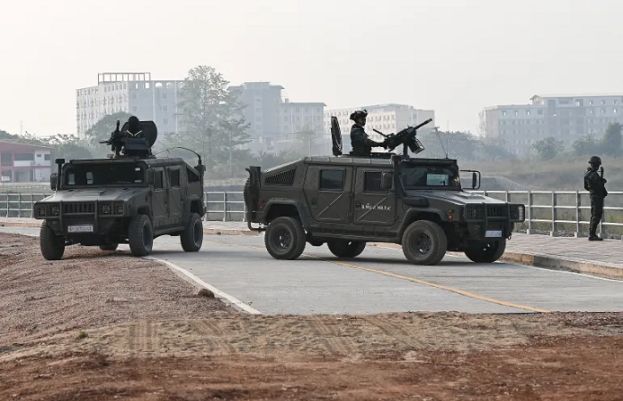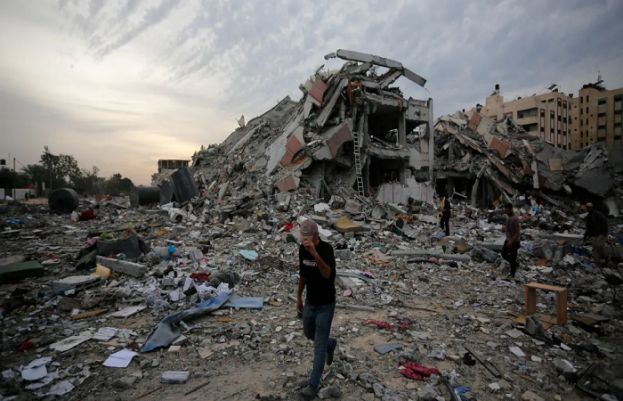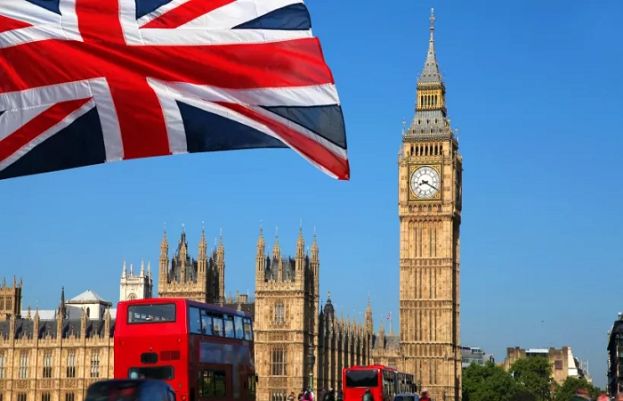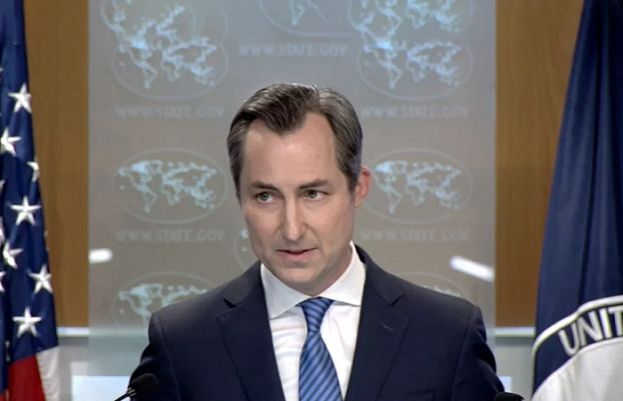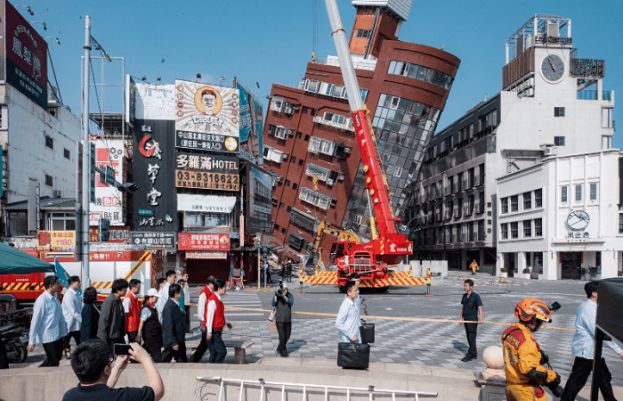
Nine people were killed and more than 1,000 injured in Wednesday’s magnitude-7.4 quake, but strict building regulations and widespread public disaster awareness appear to have staved off a major catastrophe on the island.
Dozens of residents of the worst-hit city spent a night outdoors rather in apartments still being shaken by aftershocks, and a massive engineering operation was under way to fix damaged roads and prop up tilting buildings.
Dramatic video released on Thursday by the island’s Central Emergency Operation Centre showed a helicopter flying two sorties to pluck six miners trapped in a gypsum quarry in Hualien county, near the epicentre of the quake.
Rescuers knew the whereabouts of dozens more people trapped in a network of strongly built tunnels in the county, a feature of the roads that cut through the scenic mountains and cliffs leading to Hualien City from the north and west.
“I also hope that we can use today’s time to find all people who are stranded and unaccounted for and help them settle down,” Premier Chen Chien-jen said after a briefing at an emergency operation centre in Hualien.
The island has been shaken by over 300 strong aftershocks since the first quake, and the government warned people to be wary of landslides or rockfalls if they ventured to the countryside for Qingming, a two-day public holiday that began Thursday.
Families traditionally visit the tombs of their ancestors on the holiday to clean the gravesites and burn offerings.
“Do not go to the mountains unless necessary,” warned President Tsai Ing-wen in a late-night message.
The latest figures from the national disaster agency said nine people had been killed and 1,050 injured in the quake.
Authorities were in contact with 101 people trapped in tunnels or cut-off areas, but had lost touch with another 46 — although they were believed to be safe.
In Hualien, a glass-fronted building now tilting at a 45-degree angle after half of its first floor pancaked has become something of a symbol of the quake. “When the earthquake happened, we immediately evacuated the guests… and urged them to leave,” Wang Zhong-chang, the proprietor of a nearby Hualien Hero hotel, 55, told AFP.
“I stayed in this area the whole time – I haven’t left. There’s not much to fear. I’ve experienced it before… but this time was more severe.” He was referring to the magnitude-7.6 quake of 1999 that killed 2,400 people, the deadliest natural disaster in the island’s history.
Over 100 people chose to sleep outdoors in tents at a shelter set up in an elementary school Wednesday night as the aftershocks continued.
“Our worry is when the big aftershocks happen it might be really hard for us to evacuate one more time — especially with the baby,” said Indonesian Hendri Sutrisno, 30, a professor at Donghua University.
He and his wife hid under a table with their infant when the earthquake struck before fleeing their apartment.
“We have all the necessary stuff, blankets, toilet and a place to rest,” he said.
Social media deluge
Social media was awash with videos and images from around the island shared by people who experienced the quake.
In one clip, a man struggles to get out of a rooftop swimming pool as the water swirls violently. In another, a webcam catches three cats running amok as an apartment shakes from side to side.
Officials have yet to give an estimate for a national repair bill, but operations at Taiwan’s key chip-making foundries were minimally affected.
“Overall tool recovery of our fabs (fabrication facilities) reached more than 70 per cent within 10 hours of the earthquake, with new fabs such as the Fab 18 facility reaching more than 80pc,” said Taiwan Semiconductor Manufacturing Company — the world’s biggest chip maker.
China, which claims self-ruled Taiwan as part of its territory, was “paying close attention” to the quake and “willing to provide disaster relief assistance”, state news agency Xinhua said on Wednesday.
In Washington, the White House said the United States was prepared to provide “any necessary assistance”.
Magnitude-6.0 quake shakes Japan, no tsunami alert
Meanwhile, a magnitude-6.0 earthquake struck off northeastern Japan’s Fukushima region on Thursday, the Japan Meteorological Agency said, but no tsunami warning was issued.
There were no immediate reports of damage or injuries after the earthquake, whose epicentre had a depth of 40 kilometres and which was also felt in Tokyo.
Tepco, the operator of the Fukushima nuclear power plant, said “no abnormalities” had been detected at the stricken plant or others in the region. Japan, one of the world’s most tectonically active countries, has strict building standards designed to ensure structures can withstand even the most powerful earthquakes.
The archipelago, home to around 125 million people, experiences around 1,500 jolts every year, the vast majority of which are mild. The United States Geological Survey put the magnitude of Thursday’s quake at 6.1, with a depth of 40.1km.
Japan’s biggest earthquake on record was a massive magnitude-9.0 undersea jolt in March 2011 off Japan’s northeast coast, which triggered a tsunami that left around 18,500 people dead or missing.
The 2011 catastrophe also sent three reactors into meltdown at the Fukushima nuclear plant, causing Japan’s worst post-war disaster and the most serious nuclear accident since Chernobyl.
The total cost was estimated at 16.9 trillion yen ($112 billion), not including the hazardous decommissioning of the Fukushima facility, which is expected to take decades.




